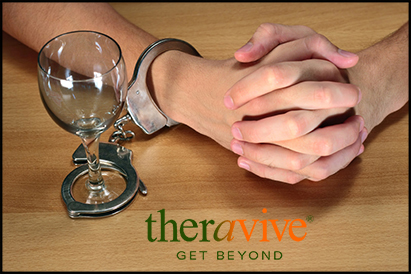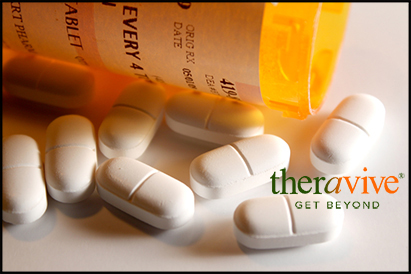 Addiction. It's a word that a lot of us have a negative response to, because it is something that we've all be conditioned to distrust and dislike. With good reason as well! Addiction can cause a lot of problems for people, both the person who is struggling with the addiction and those who are around them on a regular basis. But why does addiction happen? What happens in your body to make it addicted to something? We're going to take a closer look at the two sides of addiction in this blog post - the physiology (or physical) end of addiction, and the psychology (or mental) end of it. Both parts play a significant part in the whole.
Addiction. It's a word that a lot of us have a negative response to, because it is something that we've all be conditioned to distrust and dislike. With good reason as well! Addiction can cause a lot of problems for people, both the person who is struggling with the addiction and those who are around them on a regular basis. But why does addiction happen? What happens in your body to make it addicted to something? We're going to take a closer look at the two sides of addiction in this blog post - the physiology (or physical) end of addiction, and the psychology (or mental) end of it. Both parts play a significant part in the whole.
The Physiological Causes of Addiction
Your body is a very complex place, and there are a lot of things that come into play when we're looking at addiction. Addiction does a lot to the body, and so we're going to take a closer look at some of the major things that happen within your body when you are addicted to something (substance, person, situation, etc).
You've probably heard about alcoholism and other types of substance abuse being passed down in genes. The sad truth is, this can be incredibly true. Some people have a propensity toward addiction in their genetics, and many times you can see where it was passed down in the family. For example, I have alcoholism that runs rampant down both sides of my family tree, so even though there's not really a test to see whether or not I have a propensity toward addiction, it's incredibly likely that I could get addicted if I decided to abuse a substance. If you've got a family history of addiction, your chances are that much higher that you will have it as well.
Another end of addiction is that it actually changes the way that your brain functions, and scientists can actually look at a brain scan and see how it changes as a result of the addiction. The way that the physical parts of your brain, like the neurons and such, function is completely different in the mind of an addict than it is in the mind of someone that is not addicted to a substance. The patterns that your mind falls into on the physical end are going to be much different. That's why it's so hard for people to break free from addiction permanently - those patterns have been changed, and our bodies will not be able to switch back - so the rest of your life is going to be a bit of a battle as you fight off the old propensities.
Our bodies start to "need' the substance that you are addicted to as well. This is why people usually have to go through detox as a part of their rehabilitation and recovery, because the body thinks that it needs it. If you aren't getting it, you can go through a lot of pain, and in some cases, people even die when they're going through detox. That's why it's important for you to go through rehabilitation and not quit "cold turkey." It can keep a person safe and help them to get through the detox process in as little pain and anguish as possible. Detox is often the hardest part of rehab, and many people will tell you that, once they get through that, the rest of the path before leaving a rehab program is a bit easier than it had been prior to all of what happened. It's still hard, but the physical pain lessens significantly.
The Psychological Causes of Addiction
Obviously, a lot of what goes on with addiction has to deal with the psychology of it. There are a lot of mental health concerns that are related to addiction, and to get a better understanding of them we need to take a deeper look at it and how it can affect your brain and mind in a negative manner.
First off, there are a lot of people who get caught into addiction because they already have some sort of mental health problem. This is referred to as a "dual diagnosis," which is where substance abuse is paired with a mental disorder. Why does this happen? Because the person may not be getting the help that they need in order to get through their mental disorder, and because of that, they are looking for an option that can help them cope without having to go and see someone. As they use the substance as a "medication," it starts to take hold and the person starts to need it in order to deal with the mental disorder in question. Without it, not only are they dealing with the withdrawal symptoms that we talked about above, but they're also dealing with the mental disorder as it was before they started using the substances as a "medication." Because of this, it's important to make sure that both things are treated when the person goes into a rehabilitation program or therapy.
 Another issue that happens around addiction has to deal with social circles. You've probably heard of people who are trying to get out of addiction that have to move away or break off ties with their old friends. Social interactions can play a huge role in addiction, whether they're in an abusive situation or if they are around people who are also abusing the substance(s) that they used to use. It's not healthy to stay with that crowd after you've gone through rehab, because it's that much harder for you to break free of the addiction if you're surrounded by people who are doing the things that you aren't doing anymore. It can be incredibly frustrating to have to start all over again, but by doing it, you're increasing the chances of keeping away from the addiction for good.
Another issue that happens around addiction has to deal with social circles. You've probably heard of people who are trying to get out of addiction that have to move away or break off ties with their old friends. Social interactions can play a huge role in addiction, whether they're in an abusive situation or if they are around people who are also abusing the substance(s) that they used to use. It's not healthy to stay with that crowd after you've gone through rehab, because it's that much harder for you to break free of the addiction if you're surrounded by people who are doing the things that you aren't doing anymore. It can be incredibly frustrating to have to start all over again, but by doing it, you're increasing the chances of keeping away from the addiction for good.
Lastly, there are many people who deal with substance addiction because of things that have happen to them in their younger years. It's a shame when these things happen, but child abuse, neglect, a lack of security, and a number of other factors can play a role in a person's choice to start abusing substances. Like with the mental health issues, they become a sort of "medication" for them and they are looking to try and heal the wounds by getting rid of the feeling. Obviously, this can go hand in hand with the other mental health problems, like we mentioned above, but it's not always related and it's important for us to remember that. Some people may just have had rough pasts and the mental illness that they suffer with is substance abuse and addiction alone. It can be really hard to diagnose this, but with the help and care of rehabilitation specialists and therapists, we can unlock these things and start working toward a healthy, addiction-free life.
As you can see, addiction is a very complex disease and it's hard to fight it. The good news is, there are a lot of ways to get the help that you need in order to get through and break free of addiction. Here on the site, we have contact information for dozens of local therapists and rehab centers that can help you get through the difficult parts of addiction. Don't try to go through it alone - addiction can get a grip on your life and destroy it, so you want to make sure that you get the help that you need to overcome it.
_________________________________________________________________________________________________________________________
Fernandez, J. (2013, December 19). How Does Addiction Happen? Retrieved July 21, 2014, from http://www.psychologytoday.com/blog/what-the-wild-things-are/201312/how-does-addiction-happen
Harvard Health Publications. (2011). Understanding Addiction. Retrieved July 21, 2014, from http://www.helpguide.org/harvard/addiction_hijacks_brain.htm
National Institute of Drug Abuse. (2014, July 9). Brain and Addiction. Retrieved July 21, 2014, from http://teens.drugabuse.gov/drug-facts/brain-and-addiction
National Institutes of Health. (2012, June 8). How Addiction Happens: It's Not Just Poor Life Decisions. Retrieved July 21, 2014, from http://www.nextavenue.org/article/2012-05/how-addiction-happens-its-not-just-poor-life-decisions
Volkow, N. D. (2001). The Essence of Drug Addiction. Retrieved July 21, 2014, from http://science.education.nih.gov/supplements/nih2/addiction/guide/essence.htm
About the Author
 Marti Wormuth, MA
Marti Wormuth, MAMarti has a Bachelor’s Degree in Sociology and a Master’s in Communication Studies. Her favorite activities include reading, playing games, and hanging out with the students at her church. Marti volunteers with the youth ministry at her church as a teacher and mentor. Because of this, she recently started another degree, her graduate certificate in student ministries. She considers her current graduate work to be a stepping stone to becoming a youth pastor or a published author.
Professional Website:
martis-miscellany.com/